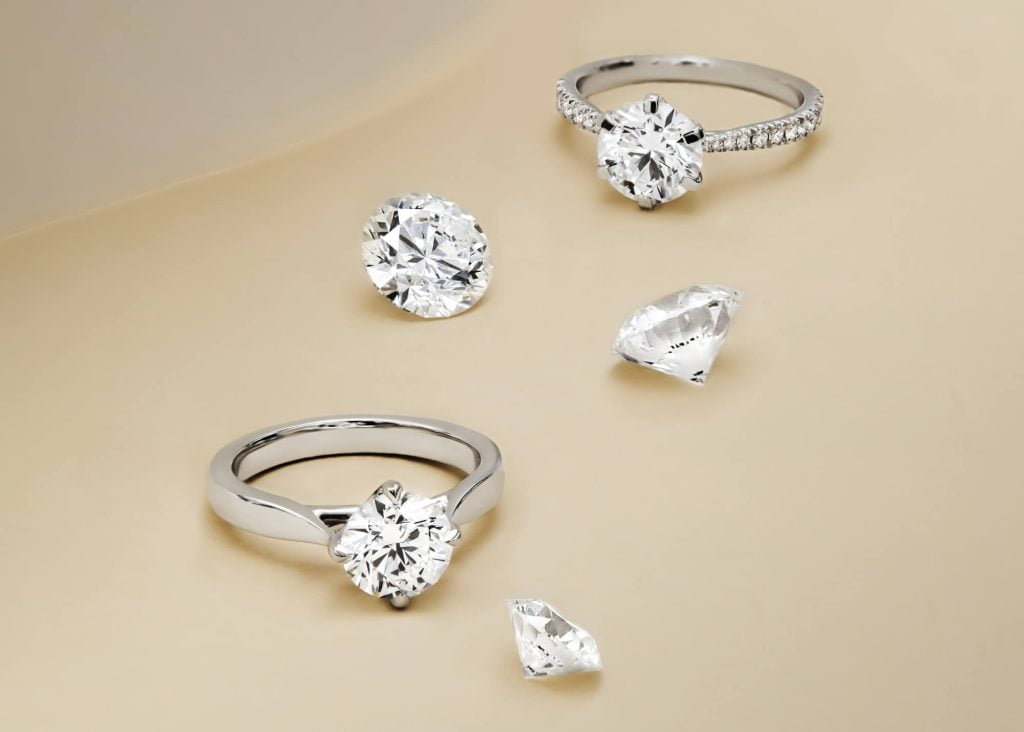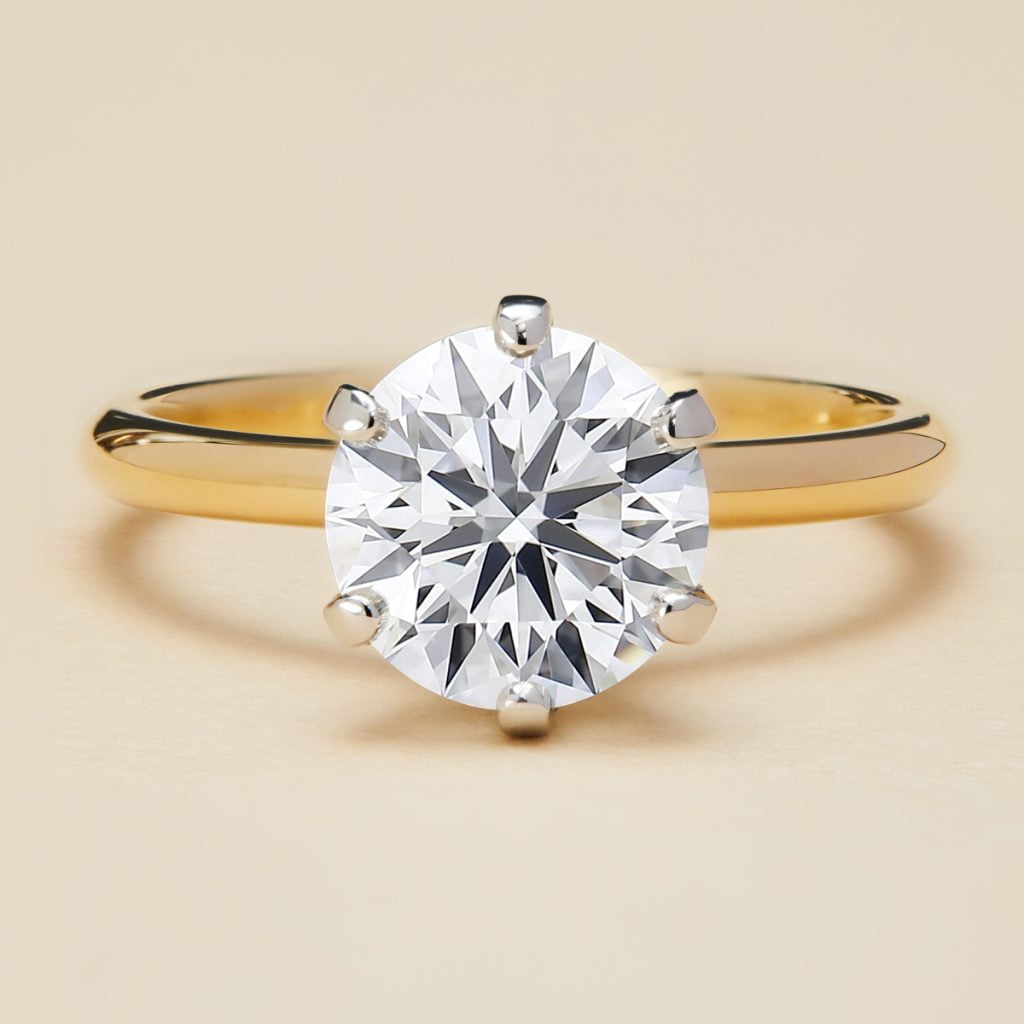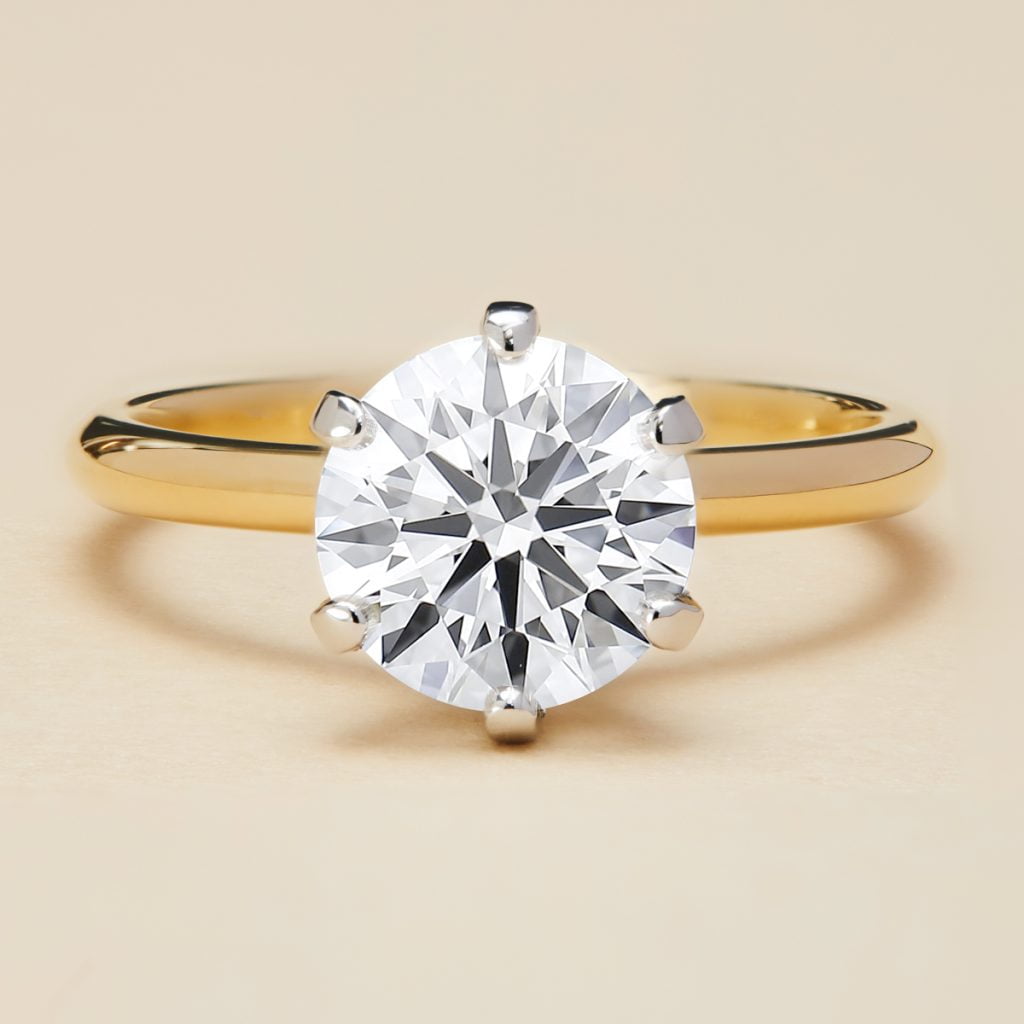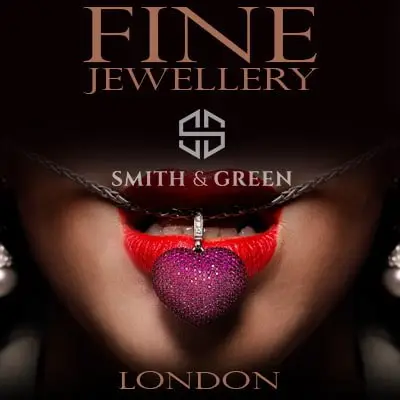The internet is awash with conflicting opinions on lab grown diamond engagement rings, which are fast disrupting the typically traditional jewellery industry. Some jewellers remain staunchly against human made diamonds, claiming they’re not the real deal and a poor investment, while others have keenly adopted the offering to accommodate ring buyers seeking exquisite quality diamonds at an inarguably great price.
So how do you know who to believe? And what information do you need to make the final call on whether to buy a lab or natural diamond for your engagement ring? Step in Laura, an expert gemmologist at Hatton Garden jewellers, Queensmith who offers both natural and lab diamonds, as she takes an impartial stance to help you decide whether to choose lab or not.
Are lab diamond rings popular?
Lab grown engagement rings are soaring in popularity – and now over 2 in 3 ring buyers at Queensmith opt for a human made diamond. This figure was less than 1% just a few years ago in 2019, but through education and learning about these amazing wonders of science, the appeal for lab diamonds is growing at a fast paced rate.
In a 2021 survey conducted by Queensmith, we found that 88% of participants said they’d actually prefer a lab diamond to natural diamond, despite 60% of those asked having never heard of them before.
Why do some jewellers refuse to sell lab diamonds?
Laboratory grown diamonds emerged in the mainstream jewellery and engagement ring market in 2020 as more jewellers began to take a risk, not knowing how consumers would respond. As word spread about their lower prices and ethical roots, jewellers were polarised: many flat out refused to go near lab diamonds. But why?
The main reason some jewellers refuse to sell lab diamonds seems to be down to their value and rarity. As one of the world’s most famed jewellery retailers, Tiffany, explained ‘we do not believe that lab-made diamonds are a luxury product and, as such, we do not intend to use them in our jewellery’ (as reported by Forbes in 2019). There is fear around the future value of lab diamonds; if they are priced so much lower than natural diamonds now, then surely their future value will be low, particularly as production output grows. But do engagement ring buyers really care about the future value of their engagement ring?
Lab diamonds are a true industry disruptor for jewellers. Other than the fact natural diamonds are rarer and more valuable than created diamonds, there doesn’t seem to be a huge amount of weight behind these jewellers’ decisions to not touch lab diamonds.
At Queensmith, we leave the choice between natural and lab diamonds up to our clients: while the majority now choose lab diamond engagement rings, there is still demand for natural diamonds. In our opinion, both are exquisite, precious and most importantly – look amazing.

Why do some jewellers say lab diamonds are fake?
Any jeweller that claims a lab diamond is not a real diamond is incorrect. Lab diamonds are created in an artificial environment that mimics the Earth’s production of diamonds – but the diamond produced is not artificial, and is always chemically, optically and physically identical to natural diamonds. Jewellers cannot claim lab diamonds sparkle less or look fake: the truth is that even gemmology experts cannot tell a natural and lab diamond apart. They’re both entirely authentic diamonds!
Can a jeweller sell a lab diamond ring without disclosing it?
We can’t vouch for every jeweller, so make sure to do your research and check online reviews. A reputable jeweller will never sell a lab diamond without disclosing – it should be your decision whether you choose a lab or natural diamond and you definitely shouldn’t be duped. It is important to find a trusted jeweller when buying your engagement ring, and it is recommended that you only consider diamonds certified by the GIA and IGI. A good jeweller will always show you the diamond’s laser inscribed unique code under magnification, which corresponds to their certificate: here, you will clearly see it stated if the diamond is lab grown. This is standard practice at Queensmith.
Can you spot which diamond below is lab grown and which is natural? Learn more about lab vs natural diamonds and find the answer at the end of this article!


What are the benefits of a lab diamond engagement ring?
- Entirely identical to natural diamonds
- Lower prices, up to 80% less
- Guaranteed ethical origins
- 100% real diamond
The price of lab diamonds is significantly lower than natural diamonds; typically between 60% to 80% less expensive. This means you can find a much bigger diamond for your budget if you opt for a lab diamond. For example, if you’re budgeting £3,000 for your diamond, you should be able to get a 1.30ct diamond or bigger. The same budget would get you a natural diamond a little above 0.60ct (these figures are accurate as of August 2022, please be aware that diamond prices fluctuate.)
Are there any cons to a lab created diamond ring?
Lab diamond jewellery is considered to be of lower value than natural diamonds, and the process of making a lab diamond can be bad for the environment – but not always. These are considered the biggest negatives to buying a lab diamond ring.
Firstly, their value is disputed as they are new commodities to the jewellery market so predicting their future worth is tricky. Lab diamonds are considerably less expensive than natural diamonds, so their resale value in the future is likely to be low. Think about whether this will bother you; do you plan to sell your engagement ring in the future anyway? And keep in mind that even natural diamond rings typically lose 30% of their value after the initial purchase.
Secondly, the environmental impact of growing a lab diamond can be pretty big; it takes a lot of energy to create a lab diamond so it can be argued that they aren’t necessarily as eco-friendly as they seem. That said, lab diamonds are increasingly being made via renewable energy, like solar power, as diamond laboratories feel the pressure to make their offering sustainable. Many actually consider lab diamonds the more eco-friendly option; it takes a huge amount of energy and land to mine diamonds.
Is it ok to buy a lab grown engagement ring?
The overwhelming majority of diamond professionals and engagement ring buys agree that lab grown engagement rings are a really great idea. A lab grown ring is entirely identical to a natural diamond ring, entirely authentic and undeniably beautiful – there’s simply no physical difference between lab and natural diamonds. While some suggest lab diamonds are a poor investment, it’s important to note that your engagement ring shouldn’t be a financial investment anyway, but an emotional purchase of something you’ll cherish forever. There is plenty to be proud of with lab grown diamond rings, including their ethical origins and zero requirements for mining large expanses of land. Plus, you’ll get a bigger lab diamond for your budget than a natural diamond!
If you’d like to view lab diamond rings, natural diamond rings or even compare the two, book an appointment with an expert and have them source a range of beautiful diamonds just for you and your budget.

















